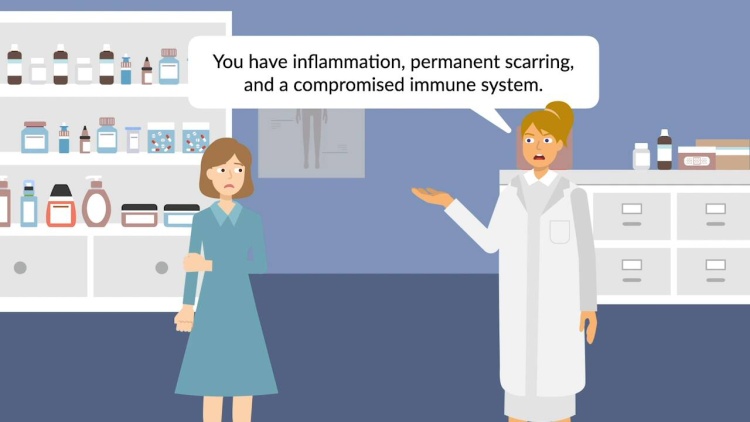Vassallo v. Baxter Healthcare Corp.
Massachusetts Supreme Judicial Court
696 N.E.2d 909 (1998)
- Written by Megan Petersen, JD
Facts
In February 1977, Florence Vassallo (plaintiff) underwent breast implantation surgery and received silicone-gel implants manufactured by Heyer-Schulte Corporation. Baxter Healthcare Corp. (Baxter Healthcare) and Baxter International, Inc. (Baxter International) (defendants) eventually assumed responsibility for breast-implant products manufactured by Heyer-Schulte. In 1992, Vassallo had a mammogram after complaining of severe chest pain. The mammogram revealed that her left breast implant had ruptured, and her right implant contained small holes through which silicone gel was leaking. Vassallo suffered permanent tissue scarring, chronic inflammation, and problems with her immune system due to the silicone-gel leakage. She and her husband brought suit against Baxter Healthcare and Baxter International. She stated that if she had known of the risks associated with gel leakage, she would not have had the procedure. Additionally, evidence was introduced at trial showing that Heyer-Schulte knew of the possible risks associated with leakage of implants at the time they were received by Vassallo, and did not inform her of all the potential risks. The jury found that the defendants had actual or constructive knowledge of the risks of breast implants at the time they were given to Vassallo and also found the defendants liable for negligence. Baxter Healthcare and Baxter International appealed.
Rule of Law
Issue
Holding and Reasoning (Greaney, J.)
What to do next…
Here's why 907,000 law students have relied on our case briefs:
- Written by law professors and practitioners, not other law students. 47,100 briefs, keyed to 996 casebooks. Top-notch customer support.
- The right amount of information, includes the facts, issues, rule of law, holding and reasoning, and any concurrences and dissents.
- Access in your classes, works on your mobile and tablet. Massive library of related video lessons and high quality multiple-choice questions.
- Easy to use, uniform format for every case brief. Written in plain English, not in legalese. Our briefs summarize and simplify; they don’t just repeat the court’s language.





